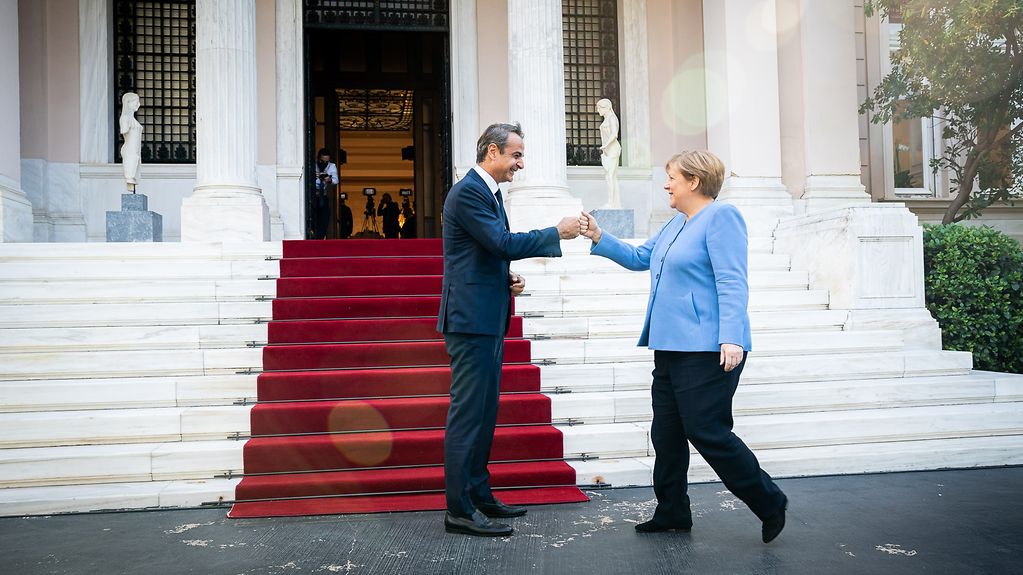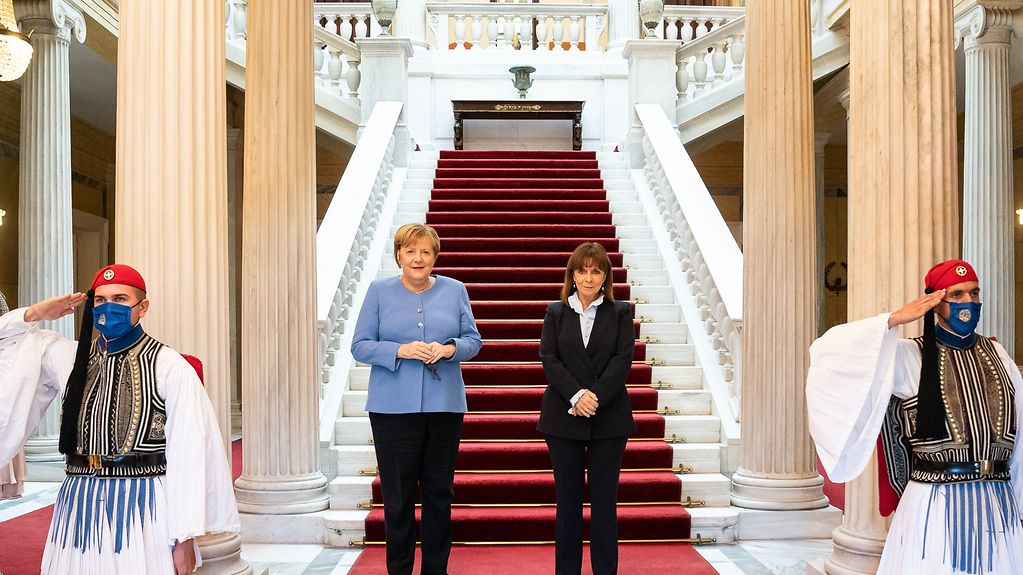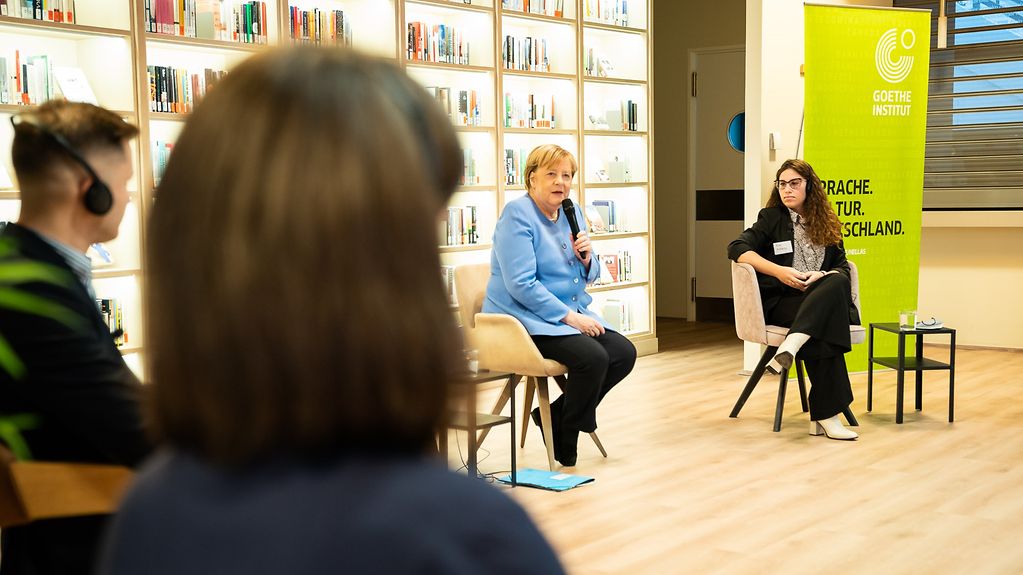Federal Chancellor Merkel in Athens
It was reassuring “that we both know we belong together in Europe,” said Federal Chancellor Merkel on Friday during her visit to Athens. As well as holding talks with Greek President Sakellaropoulou, Merkel also met her counterpart Prime Minister Mitsotakis.
4 min reading time

Welcoming Federal Chancellor Merkel in Athens: Greek Prime Minister Mitsotakis.
Photo: Federal Government/Kugler
On her visit to Greece, Federal Chancellor Angela Merkel first met with young representatives of civil society on Friday morning. She spoke to them at the Goethe-Institut in Athens about Europe’s prospects and the challenges it faces.
Dialogue is crucial, especially when problems arise
Merkel then met for talks with Greek President Katerina Sakellaropoulou. Even though there had been “difficult situations” in the relations between the two countries during her term as Federal Chancellor, “at the end of the day” dialogue had “always been the key to finding a solution,” said the Federal Chancellor. “What always gave us strength on both sides was that we both know we belong together in Europe.”

The Federal Chancellor met with Greek President Katerina Sakellaropoulou at the Presidential Mansion in Athens.
Photo: Federal Government/Kugler
Preserving the stability of the European Monetary Union
The next item on the agenda was a meeting with Prime Minister Kyriakos Mitsotakis. Looking back on her time as Federal Chancellor, Merkel again commented on the enormous challenges Greece faced. She personally was very aware of “the impositions and the challenges involved for the people in Greece in relation to the question of the euro. But ultimately we managed to find a way for Greece not only to be in the European Union for 40 years, but also to be a member of the euro,” she said.
The Hellenic Republic, as Greece is officially called, is located in south-eastern Europe, on the eastern Mediterranean to be precise. With a surface area of just under 132,000 square kilometres, the country has a population of some 10.7 million, of which just under 665,000 live in the capital Athens. Greece borders on Albania, Northern Macedonia, Bulgaria and Turkey. Because of the importance of ancient Greek philosophy and state practice, the country is often referred to as the cradle of Western democracy. In 1981, Greece joined the European Community (EC), the predecessor organisation of the European Union.
Refugee crisis: responsibility shared
It was no less difficult for Greece to cope with the influx of refugees from Syria that started in 2015, said the Federal Chancellor. Summing up, she added: “Here again, I think we’ve shown that we’re able to share responsibility and work together effectively. I believe the EU-Turkey agreement that we adopted at the time is a case in point of how we have to work together – in this particular instance with Turkey, too.”
Coronavirus pandemic: close cooperation has proven effective
With regard to the coronavirus pandemic, Merkel praised the close cooperation with Greece, both bilaterally and at the European level. This was why she “wholeheartedly” approved the Recovery Fund and the “Next Generation EU” programme, she said. While the pandemic had been “an enormous disaster” for everyone, Merkel said, this was “especially true for those countries in the European Union that previously went through a long phase of reforms and spending cuts.”
Managing transformation together
Now, she said, it was “vital in the interests of fairness, cohesion and also the functioning of the single market” that countries such as Greece, Portugal, Italy and Spain should be given the opportunity to invest in the future. The Federal Chancellor mentioned climate protection and sustainable biodiversity as examples here. Merkel appealed for mutual support in “genuinely joining forces to master the transformation of the economy, energy supply and mobility”.

On Friday morning, Federal Chancellor Merkel visited the Goethe-Institut in Athens.
Photo: Federal Government/Kugler
Importance of encounters beyond tourist travel
Merkel expressed her delight at the founding of the German-Greek Youth Office. “I believe it is vital to create programmes of this kind that are not only aimed at young academics but at all sections of the population so that young people in our two countries can get to know each other better.” The German-Greek Assembly, which is dedicated to political collaboration at communal level, was also “highly effective in enabling Germans and Greeks get to know each other even better – beyond the wonderful tourist experience that of course numerous Germans make the most of here in Greece.”
“United to our benefit”
Merkel stressed that she firmly believed relations between Germany and Greece would continue to develop well under a new German government and that cooperation in the European Union would also remain close. “‘We are united to our benefit’ – this is what we said on the 50th anniversary of the Treaties of Rome, and it remains true to this day,” Merkel concluded.